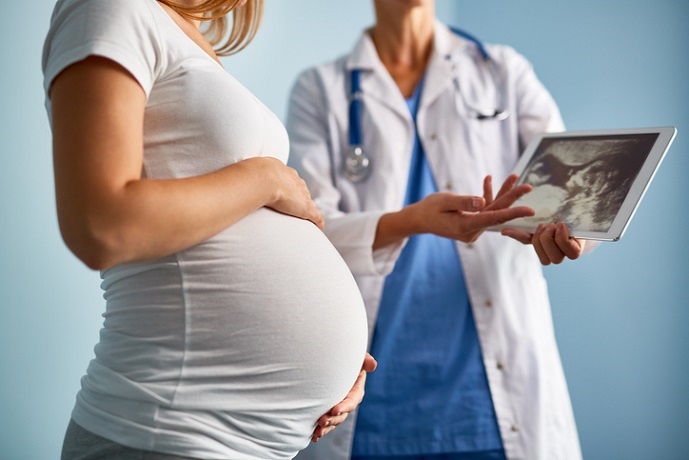
Mortality estimates released by Unicef in 2019 indicate that about 2.8 million pregnant women and newborns die every year. This means 1 every 11 seconds, and this is mostly of preventable causes.
Presenting at a recent webinar hosted by medical scheme group Discovery and the SA Medical Association on the impact of Covid-19 on maternal and reproductive health, Professor Priya Soma-Pillay said there was a 30% increase in maternal deaths during lockdown in South Africa compared to the same period (from April to September) in 2019. Soma-Pillay is the head of department of obstetrics and gynaecology at the University of Pretoria, Steve Biko Academic Hospital and University of Pretoria Research Centre for Maternal, Fetal, Newborn and Child Health Care Strategies.
The 30% finding is based on data from the District Health Information System and has been published in the publication Obstetrics & Gynaecology Forum.
Increase in maternal deaths
Referring to the 30% increase in maternal deaths, Soma-Pillay said the peak prevalence of maternal deaths was in June, a month before the peak in the mortality in the general population (July). The study covered only South Africa’s first wave of Covid-19 and did not look at the second wave in December/January.
In their article, Soma-Pillay and her co-authors write that the leading factors in maternal deaths were identified as among others, a lack of transport, lack of beds at facilities and human resource factors like delays in referral, lack of expertise, delay in appropriate action as well as a lack of human resources.
READ: What SA’s Covid-19 experience tells us about NHI
“The use of maternal services (in facility birth and antenatal care) has remained relatively steady but use of reproductive health services (contraception and termination of pregnancy) have declined sharply since lockdown,” said Soma-Pillay.
“From January to March 2019 there were 270 maternal deaths. In the same period, in 2020, there were 235 maternal deaths, constituting a 13% decrease. In April to September 2019, there were 441 maternal deaths compared to 572 in the same period in 2020 when the country was in lockdown. This translates to a 30% increase in maternal deaths in that period.”
Health department responds
When asked about the 30% increase in maternal deaths, national department of health spokesperson Popo Maja, only confirmed to Spotlight that maternal health services were affected, mainly during the level 5 lockdown. He said it improved as the lockdown eased with time. “The main reason was lack of transport to health facilities for women who did not think they have an emergency situation,” Maja said. “Several messages were sent to pregnant women about the need to continue visits to facilities for routine follow-ups. Services were classified as essential, thus health facilities continued to render these services even during lockdown.”
Soma-Pillay said it is “very unlikely that the majority of excess maternal deaths are due to undiagnosed Sars-CoV-2 infection”. According to her, it is more likely that the deaths are due to the indirect effects of Covid-19 on maternal care services.
But the risk for severe disease in pregnant women with Covid-19 may nevertheless be higher than in the general population, according to Salome Maswime, Associate Professor and the head of the Global Surgery Division at the University of Cape Town. Maswime was speaking on the same webinar as Soma-Pillay.
“In the larger US study by the Centre for Disease Control and Prevention comparing pregnant and non-pregnant women, pregnant women were significantly more likely to require intensive care and mechanical ventilation than non-pregnant women of the same age,” she said. “Pregnant women faced a 70% increased chance of death, when compared to non-pregnant women who were symptomatic.”
Rural-urban patterns
“There have been two markedly different effects of Covid-19 on maternal care,” Soma-Pillay said. “Rural provinces experienced pressure on services due to women migrating from metropolitan areas back to their homes – [putting an] increased burden on already under-resourced facilities. Metropolitan areas were inundated with severe Covid-19 specific conditions resulting in difficulty managing routine emergencies,” she said.
“The number of births in public health facilities per month was greater each month than in 2019, except for KwaZulu-Natal, where there was a decrease in in-facility births. There was a marked movement of pregnant women to the more rural provinces, especially Mpumalanga and Limpopo provinces during lockdown,” said Soma-Pillay. “This resulted in a marked increase in first antenatal visits and births in the two provinces.”
Soma-Pillay noted that it could also be possible that there was a trend to more home births, especially in KwaZulu-Natal. “[But] the increase in maternal deaths was noted across all areas (provinces, metropolitan areas and large rural districts),” she said.
Birth experiences, depression and Covid-19
A survey of 496 new mothers from September to October last year, assessed the impact of the Covid-19 lockdown on birth and new parenting experiences. The team which included two epidemiologists, a midwife and a health researcher conducted a cross-sectional internet-based survey.
One team member, Dr Elise Farley, who also gave birth during lockdown and who is an epidemiologist in the department of Public Health and Family Medicine at the University of Cape Town, said 63% of women reported symptoms of probable depression and only 15% accessed mental health services during this time.
She told Spotlight factors associated with probable depression included negative birth experiences and difficulty accessing health services during lockdown. “About 26% of mothers (surveyed) struggled to access care for their baby or themselves due to lockdown. There were about 20% of mothers surveyed who had negative birth experiences associated with sudden change in delivery plans, and where the mother was diagnosed with Covid-19 or the baby was born prematurely and there was a lack of access to breastfeeding support,” Farley said.
Maternal deaths from suicide
Soma-Pillay said often hypertension, obstetric haemorrhage or cardiac disease are among the leading causes of maternal death in South Africa. But now, she said, a previously unrecognised major cause of maternal mortality in the country has been added to the mix. Since 2019, they observed an increase in deaths by suicide during pregnancy. This, she believes, may have been compounded by the stressors of the Covid-19 pandemic.
“Women in low-and middle-income countries face several life stressors that increase the risk for suicidal ideation and behaviour. This is likely to increase dramatically with the Covid-19 pandemic,” she said.
READ: ‘When will it end?’: How a changing virus is reshaping scientists’ views on Covid-19
Soma-Pillay explained to Spotlight that maternal death as a result of suicide has been under-reported in South Africa for several reasons. “Maternal deaths from suicide during pregnancy and the puerperium have been missed in maternal mortality enquiries such as that of the National Committee for Confidential Enquiries into maternal deaths. (Puerperium refers to the period-usually six weeks- after the delivery of the placenta)
“This,” Soma-Pillay said, “is due to the multiple [categories] where pregnant women dying due to suicide have been classified.” Cause of death can for example be recorded as “unknown” rather than suicide.
“The diagnosis is associated with stigma and relatives may be unhappy to have it classified as suicide,” Soma-Pillay said. In addition, she pointed out that most maternal death enquiries collect data up to 42 days after delivery, but suicide from postnatal depression may occur up to one year or as ‘late’ maternal deaths.
- This article is published by Spotlight – health journalism in the public interest.




 Publications
Publications
 Partners
Partners











